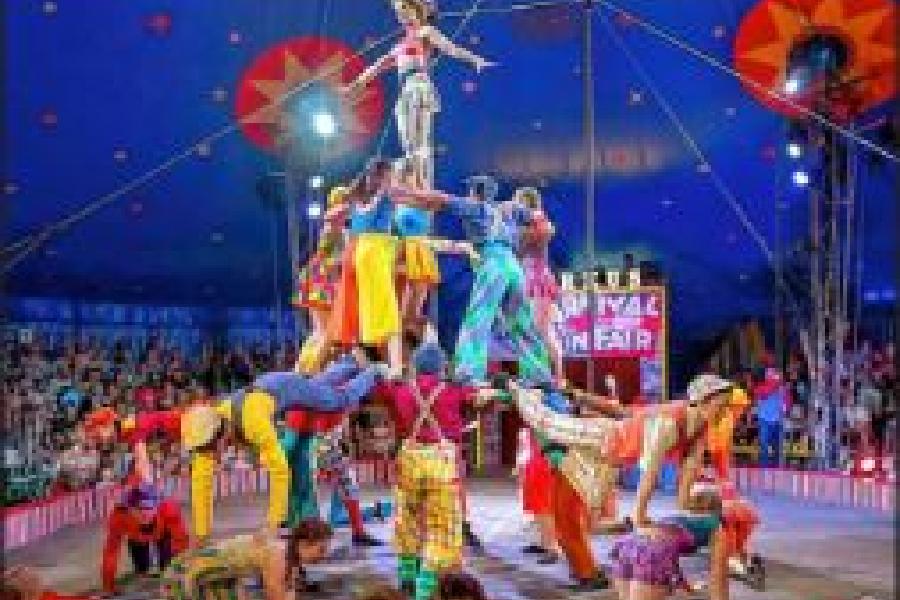Book: The Circus Train
Author: Amita Parikh
Publisher: Sphere
Price: ₹499
Amita Parikh’s debut novel, The Circus Train, is a well-researched historical fiction set between 1938 and 1952, thus taking within its ambit the perilous and precarious period of the Second World War. The circus train, carrying performers and retainers of the Sterling and Beddington World of Wonders, traverses a wide range of countries in western and eastern Europe and, finally, ends up in the Far East. Like the train’s trajectory, the plot’s scope is also extensive. It takes into account issues like physical disability, antisemitism, interpersonal relationships and weaves a tale that is resplendent with glamour and wealth on the one hand and the terrible realities of the Holocaust on the other. The novel achieves a perfect balance between the historical context and the vicissitudes faced by the main characters in their personal lives within the garb of a narrative that is romantic both in spirit and matter.
At the heart of the novel lies the issue of identity and one’s position in a rapidly changing world. Helena, or as she is commonly known, Lena Papadopoulos, the daughter of the master illusionist, Theo Papadopoulos, had been afflicted with polio in her infancy and remained wheelchair-bound till she was thirteen. She accompanies her father on the train, as her mother had died shortly after giving birth to her, and immerses herself in a world of learning even as her physical disability marks her out in an ambience full of agile, physically dexterous people. Life takes a turn for Lena when a young Jewish boy named Alexandre is found collapsed with exhaustion and hypothermia in the pantry car of the train where he had sneaked in to steal some food. The growing friendship between Lena and Alexandre and Theo’s persuasion of the owner of the circus, Horace Beddington, to let Alexandre join the circus as his apprentice under a false identity and passport change the course of the future for all three of them. With the ministration of Dr Wilson, the resident doctor of the circus company, and the encouragement of Alexandre, Lena starts regaining strength in her legs. Under the supervision of her governess, Clara, Lena makes attempts to get into a boarding school. But the deteriorating political situation in Europe eventually leads to the capture of Theo and Alexandre by the SS. They are sent to Theresienstadt (a so-called spa town for wealthy Jews located in Bohemia; in reality, the combination of a ghetto and a concentration camp) where they are recruited as performers for the inhabitants. Their special status partially protects them from the horrors inflicted upon the other inmates, but the reader gets quite an extensive picture of what went on in the ghetto at the height of the War. Theo and Alexandre’s eventual escape from captivity and their search for Lena — who had been led to believe that both are dead — reads like a wonderfully crafted adventure narrative.
All three protagonists try to find a place for themselves and figure out their social, racial, and familial identities through the course of the narrative. Lena’s iron-hard will helps her overcome her physical obstacles, but she still faces difficulty being accepted into medical school and fulfilling her dream of becoming a doctor because of her gender. Alexandre’s racial identity and his sordid past make him an arch-survivor. Theo struggles with a sense of guilt for carrying a secret about Lena’s birth. His true identity is only revealed to her once they finally reunite after a hiatus of eight years.
The effect of the War on the Continent and across the world is deftly portrayed not only through the struggles of Theo and Alexandre but also through the falling fortune of the World of Wonders. The seemingly secure and unchanged life that Horace thought they would be leading within the confines of the Circus Train turns out to be an illusion greater than what Theo could produce on stage.
Over and above all, The Circus Train is a story of love and relationships — the love that existed between Lena and her father, between her and Alexandre, between Theo and Alexandre, and among the various members of the crew is meant to overcome the overwhelming sense of loss and injustice that the World War had unleashed upon the world. Parikh deals with important issues like disability and the attitude towards people with disability with care and sensitivity. Her language is lucid and unencumbered, making the novel engrossing.
Apart from the two widely divergent accounts of how Lena contracted polio by Dr Wilson and Theo, a few typographical errors, and the anomalous reference to a “rickshaw” with the ignition in India (the novelist’s little nod to the country of her origin), the novel is a sparkling debut that leaves the reader waiting for more from the author.










